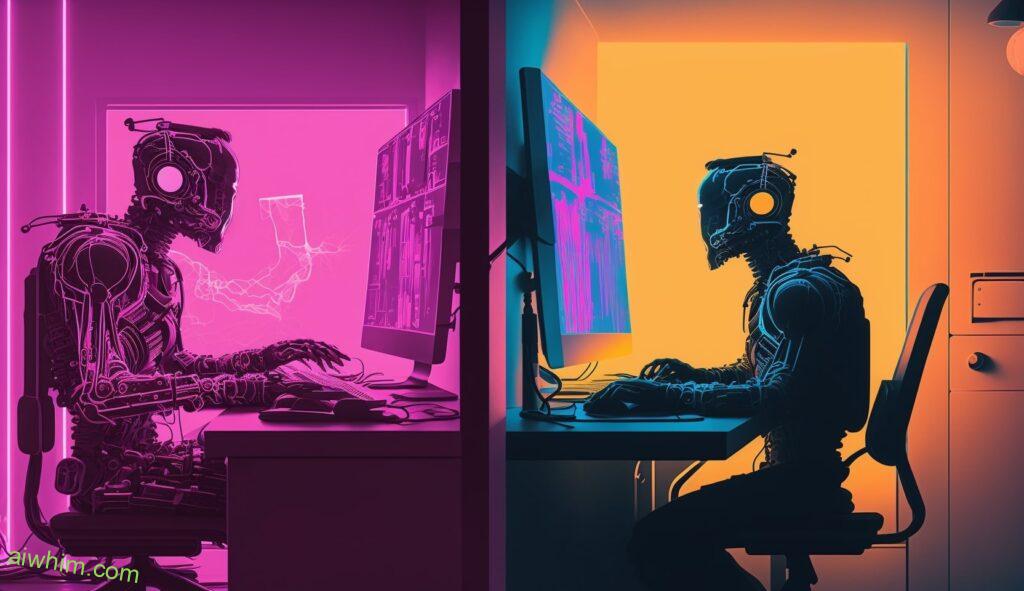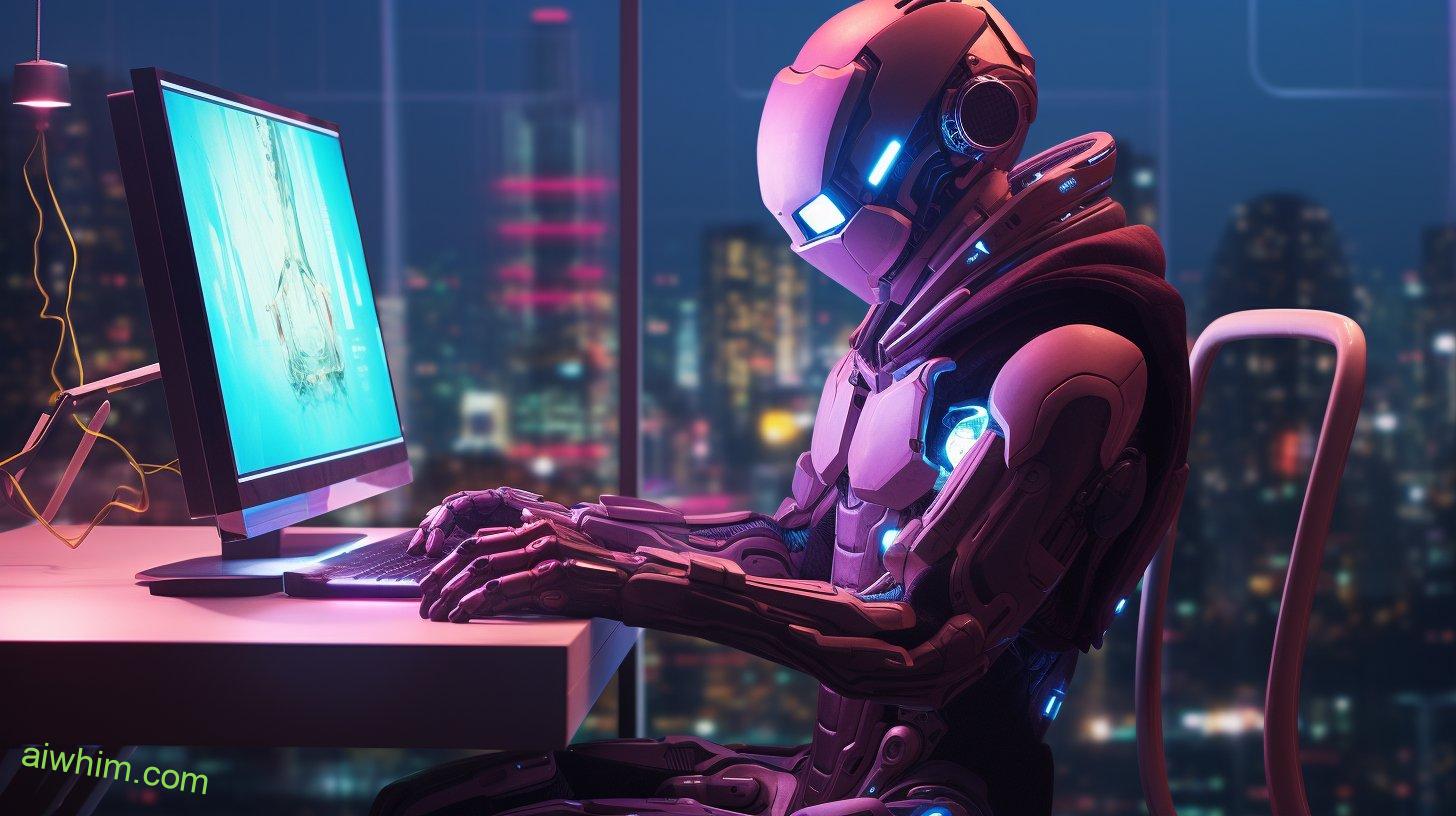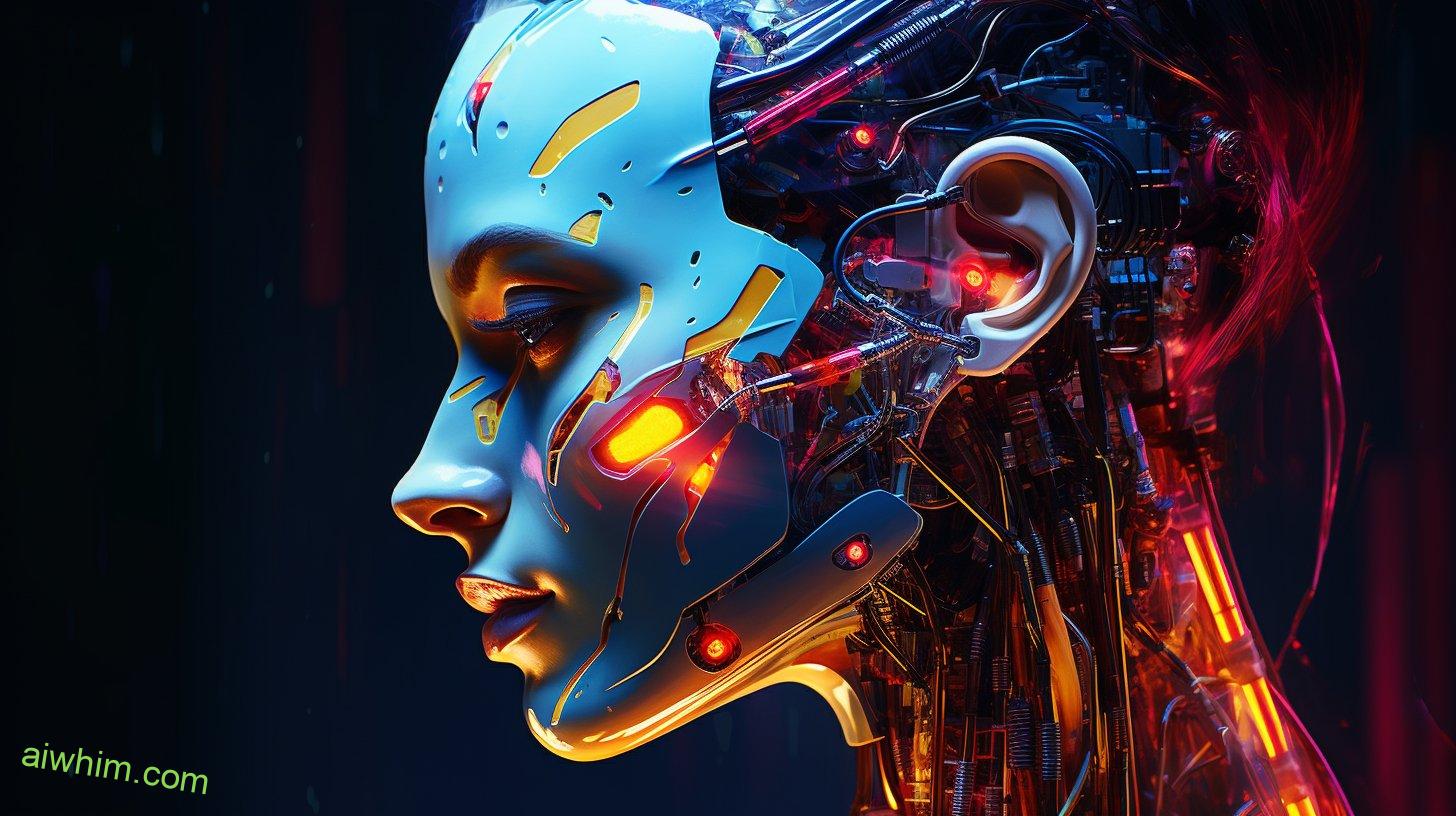Are you a customer service representative? If so, your job may be at risk of being replaced by chatbot technology. As the world moves towards automation, companies are increasingly turning to artificial intelligence (AI) solutions for their customer service needs. In this article, we’ll explore the reasons why your customer service job is in danger of being taken over by a chat bot. From cost-saving benefits to improved efficiency and accuracy, there’s no denying that AI can offer some serious advantages compared to human labor – but how much of an impact will it really have on your job in customer service? Read on to find out more.
But before we start, you may also want to read our study of the 100 most at-risk occupations from chatbots and AI. Are costumer service jobs among them?
What Is A Chat Bot?
It’s no secret that technology is advancing rapidly. Could it be true that customer service jobs are at risk of being replaced by chat bots? A chat bot, also known as an artificial conversation agent, is a computer program designed to simulate conversations with human users. It typically uses text-based messages and can respond in natural language or through pre-programmed responses depending on the query posed by the user. Chat bots can help automate many routine tasks such as answering frequently asked questions and providing product information, making them valuable tools for businesses looking to improve their customer service experience. By utilizing these automated solutions, companies can offer a more efficient service while still providing quality support to customers.
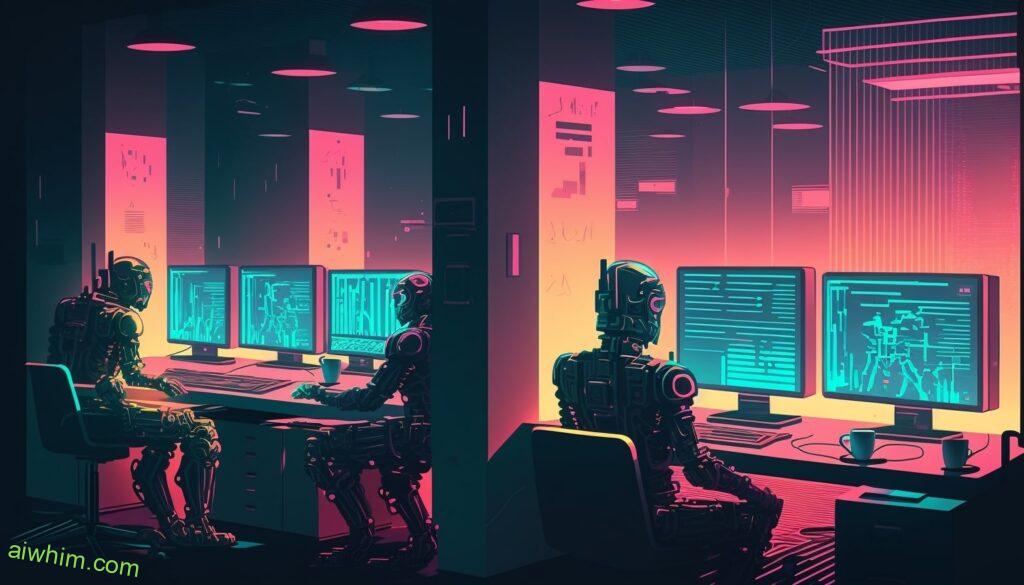
Evolution Of Automation In Customer Service
The evolution of automation in customer service is undeniable. Automated chatbots are becoming increasingly popular for customer support as businesses recognize the numerous advantages it offers them. Chatbots can answer simple questions quickly and efficiently, allowing customers to get the information they need without having to wait on hold or talk to a representative. Additionally, bots can provide consistent answers which ensures that customers are given accurate information each time. Furthermore, automated systems save companies money by eliminating the costs associated with hiring staff for these roles.
This technology has already become an integral part of many industries around the world and its increasing popularity means that customer service jobs could eventually be replaced entirely by bots. Companies may find this more cost-effective than employing humans in such positions, resulting in fewer employment opportunities available. Despite this, there will still be some tasks that require human involvement, such as dealing with complex queries or complaints where empathy plays a vital role. Nevertheless, it’s clear that automation is here to stay and customer service jobs must evolve accordingly if they want to remain relevant in the future.

Benefits Of Automating Customer Service
Now, let’s focus on the benefits of automating customer service. Automation has several advantages that can increase efficiency and reduce costs for businesses. Firstly, automated customer service systems are able to handle multiple requests simultaneously. This allows customers to get their questions answered quickly and accurately without waiting in a long line or taking up valuable employee time. Additionally, these systems can provide personalized responses based on individual customer needs more easily than human agents could manage. Furthermore, automation eliminates the need for manual processes such as data entry, which reduces errors and save employers money.
Lastly, an automated system is always available, regardless of holidays or other events that may keep employees away from work. This means customers don’t have to wait around if they need help immediately; they can just use the chatbot instead! With all these advantages put together, it’s no wonder why automation is becoming increasingly popular in customer service departments across industries – it simply improves the customer experience while saving money and resources at the same time!
Reasons For The Growing Interest In Chat Bots
The world is changing quickly, and with it so has the way we interact with customer service representatives. Chat bots have been rapidly gaining popularity among customers as companies realize their potential to provide a more efficient and cost-effective means of offering customer service. But why are chat bots becoming such an attractive option for businesses?
One reason for this increasing interest in chat bots is that they can simulate human conversation fairly accurately. Customers don’t need to explain their problems multiple times or wait long periods of time before getting assistance from a real person. Moreover, since chat bots operate 24/7, customers can get answers instantly regardless of when they contact the company. This helps create better experiences for customers and reduces customer frustration due to waiting times.
Furthermore, because these robots require minimal training and maintenance costs, businesses can save money on labor costs while still providing effective customer service. Additionally, by using data analysis techniques such as artificial intelligence (AI), companies can collect valuable information about consumers’ preferences and behaviors which makes it easier for them to tailor services according to each individual’s needs. As a result, businesses gain insights into how best to meet their customers’ expectations and improve overall satisfaction levels.
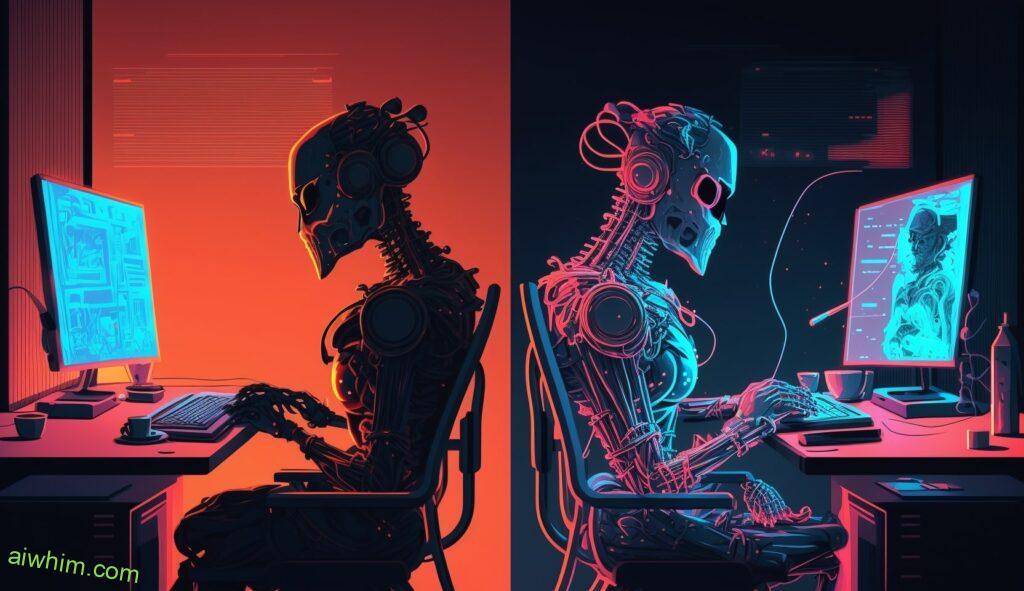
Challenges Of Replacing Human Agents With Chat Bots
While the chat bot offers significant advantages over human agents, it is not without challenges. Despite their potential to increase customer satisfaction and reduce costs for businesses, there are several risks associated with replacing human customer service personnel with a robot.
The biggest challenge that companies face when transitioning from humans to robots is developing an AI system that can understand customer needs and respond accurately. Without an effective artificial intelligence system in place, customers will be left frustrated as they try to communicate with a chatbot which cannot comprehend their questions or concerns. Additionally, relying on automated systems may lead to errors or omissions in communication due to an inability of the chatbot to identify certain nuances in language use or context clues. This could potentially cause further dissatisfaction among customers who have already been inconvenienced by having their query answered incorrectly or delayed.
In addition, another issue relates to data security and privacy. As more companies turn towards using these technologies, they must ensure that any sensitive customer information remains secure at all times. Companies need robust cybersecurity protocols in place to protect against potential hackers and viruses that could corrupt the data being stored within the system. Furthermore, laws such as GDPR (General Data Protection Regulation) also require companies to meet specific standards regarding user data protection and consent agreements before processing any personal details about customers. Failure to adhere to these regulations can result in hefty fines for organizations who do not take appropriate measures when managing user data through AI-driven solutions like chat bots.
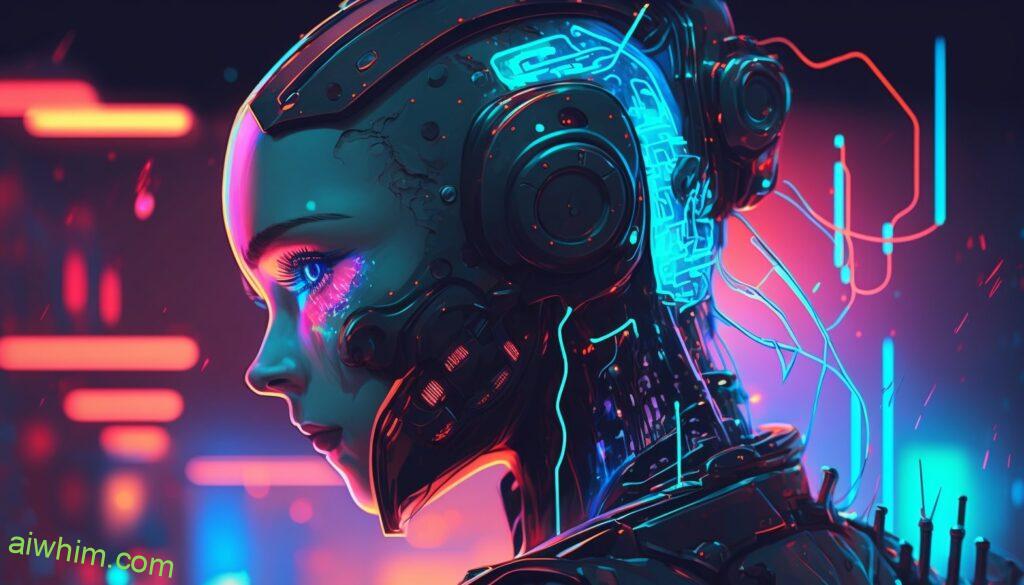
Limitations Of AI-Powered Solutions
AI-powered solutions like chat bots have a number of advantages compared to human customer service agents. They are cheaper, more efficient, and can handle multiple concurrent conversations with ease. However, they also come with limitations that can leave them vulnerable to being replaced by humans in certain situations.
First, chatbots cannot respond intuitively or empathically to customers’ needs. AI algorithms are designed primarily for efficiency and accuracy rather than the personalization which is required when dealing with complex customer queries. As such, these automated systems may be unable to accurately assess how best to proceed with difficult inquiries. Furthermore, as technology advances it becomes easier for customers to recognize when they’re speaking to an artificial agent instead of a human one; this could lead to frustration on their part and potentially damage your company’s reputation if not dealt with promptly by a real person.
In addition, AI-based solutions lack the flexibility needed for dynamic problem solving scenarios because they rely on pre-programmed rules and rigid decision trees. This makes them ill-suited for unpredictable demands from clients or unusual requests that require creative thinking outside of the set parameters programmed into the system. For tasks that involve high levels of complexity or specialized knowledge, conversational robots simply cannot match up to knowledgeable professionals who possess years of experience in the field.
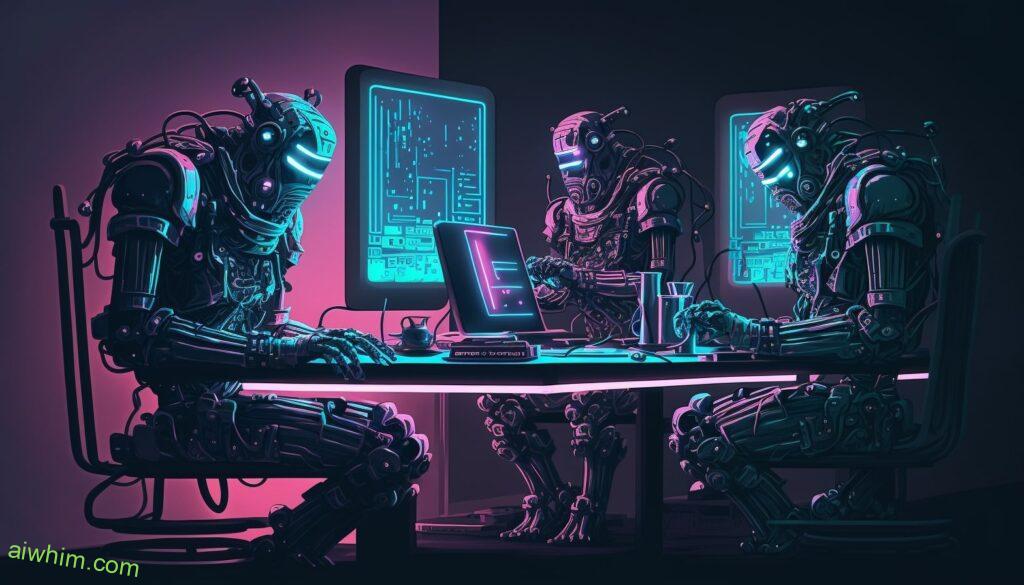
Adoption Rate Of Chat Bots In Different Industries
Despite their limitations, AI-powered solutions are rapidly being adopted in many work sectors.
Chat bots have become especially popular with large companies due to the cost savings they offer as well as increased customer satisfaction rates. They can provide customers with immediate responses without needing human intervention and can also handle more complex questions than ever before. Additionally, some businesses have even started using them to automate their entire customer service processes.
However, despite these advantages, there is still a place for humans in customer service roles since they are better at recognizing nuances and adapting on the fly when unexpected problems arise. Furthermore, while chatbots may be able to answer simple inquiries quickly and accurately, it takes time and effort to train them properly so that they can respond effectively to more complex issues. Therefore, it’s important to consider both sides when deciding whether or not to invest in AI-based customer service solutions.
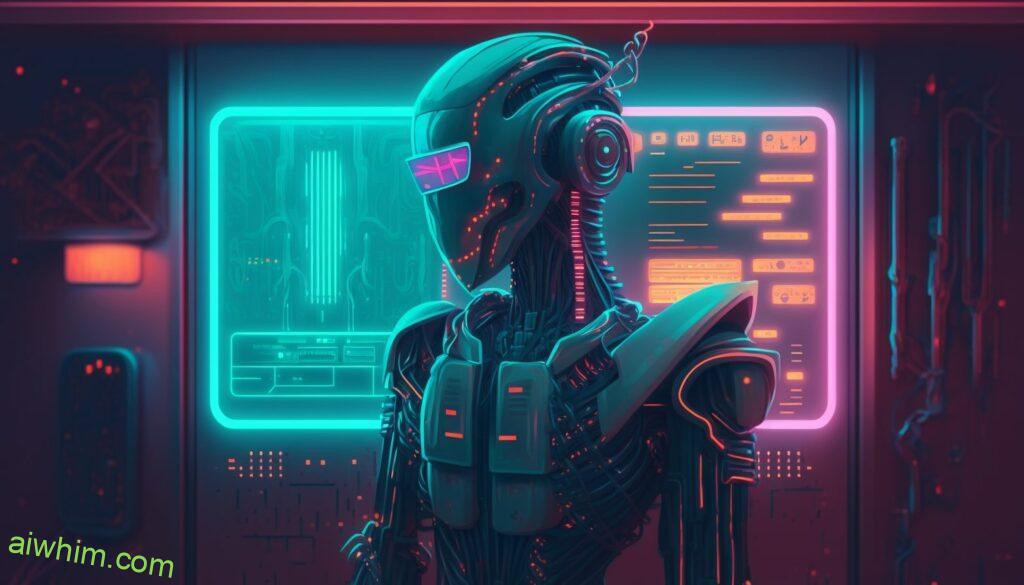
Common Use Cases For Chat Bots
Chat bots are becoming increasingly popular in customer service roles because of their efficiency and ability to handle multiple conversations simultaneously. They can be used for a variety of tasks, such as providing information about products or services, helping customers complete transactions, answering frequently asked questions (FAQs), and troubleshooting technical issues. Chat bots also have the capability to route customers to an appropriate human representative if necessary.
In addition, chat bots allow businesses to provide 24/7 support that is available whenever a customer needs it. Customers no longer need to wait on hold while they try to get assistance from a live agent; instead, they can access help immediately with little effort. This eliminates frustrations associated with long wait times and allows companies to better serve their customers’ needs. By using chat bots for customer service, businesses can improve satisfaction levels by offering more timely responses and personalized experiences for each user.
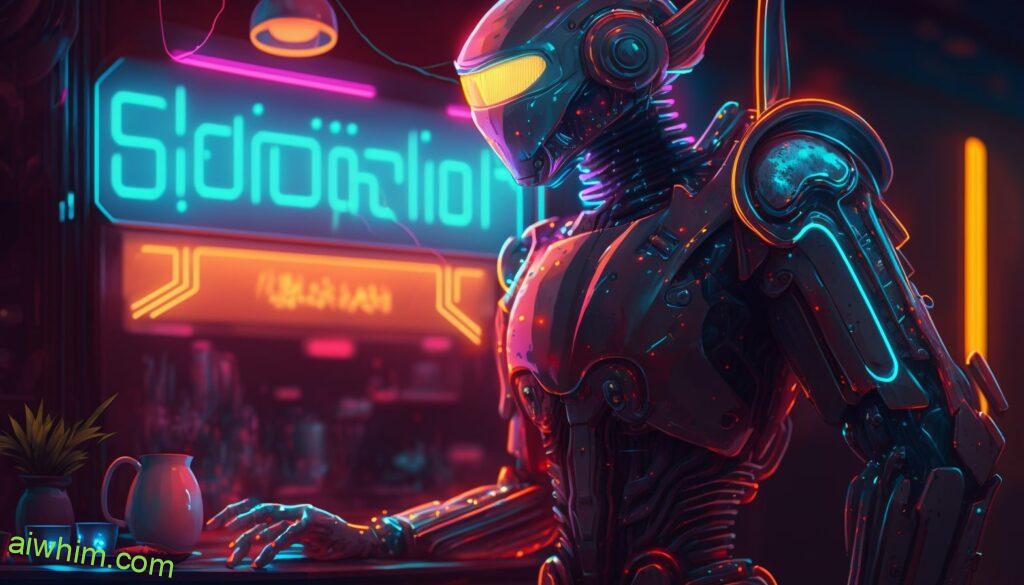
Impact On Customer Satisfaction
The transition from common use cases for chat bots to the impact on customer satisfaction is like a bridge that connects two rivers. While chat bots have been incredibly useful in providing automated, efficient services and support, there’s still concern about how they will affect customer service jobs.
Chat bots can be programmed with specific instructions or information so customers get the answers they need quickly and accurately. This makes them well-suited for simple tasks such as answering frequently asked questions (FAQs) and taking orders. However, these same characteristics make it possible for businesses to replace human customer service agents with automated chat bots. The lack of personal connection could result in lower levels of customer satisfaction because humans provide more personalized interactions than robots do. Additionally, if something goes wrong with an order or if the customer needs advice, a robot won’t be able to offer any help at all.
This means customers may become frustrated when dealing with a chat bot instead of a real person who understands their individual needs better. Furthermore, this could lead to fewer repeat purchases and even negative reviews online due to dissatisfaction over robotic responses that don’t feel genuine enough compared to those provided by living people.
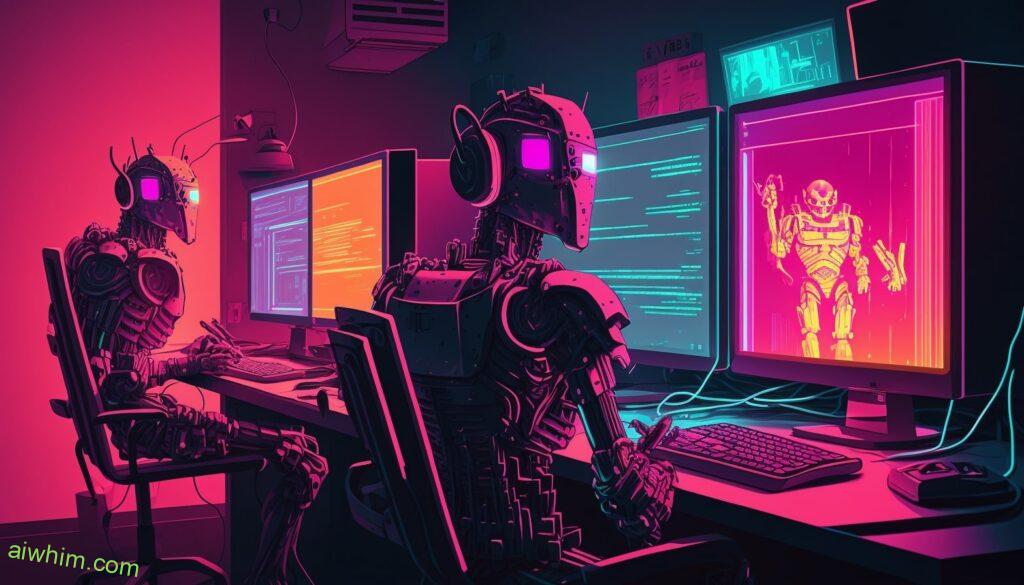
Impacts On Cost Reduction And Efficiency
The cost savings associated with chat bots are undeniable. Automated customer service eliminates the need for a human workforce, which results in fewer wages to pay and reduced overhead costs. Additionally, since chat bots do not require breaks or sleep, they can handle an increased volume of inquiries without needing additional staff. This means that companies don’t have to hire more workers when their customer base expands. Furthermore, chatbots can quickly and accurately provide customers with the information they seek, reducing wait times and helping businesses reduce operational costs.
Customer experience is also improved through automated customer service as chat bots ensure consistent responses to queries regardless of who is providing them. By eliminating discrepancies between agents’ answers, customers get faster resolution times and better quality support overall. In addition, by leveraging data collected from conversations with customers, businesses gain invaluable insights into their customer’s needs which help them improve services or products over time. Ultimately this leads to higher satisfaction rates among customers while simultaneously decreasing operating expenses for business owners.
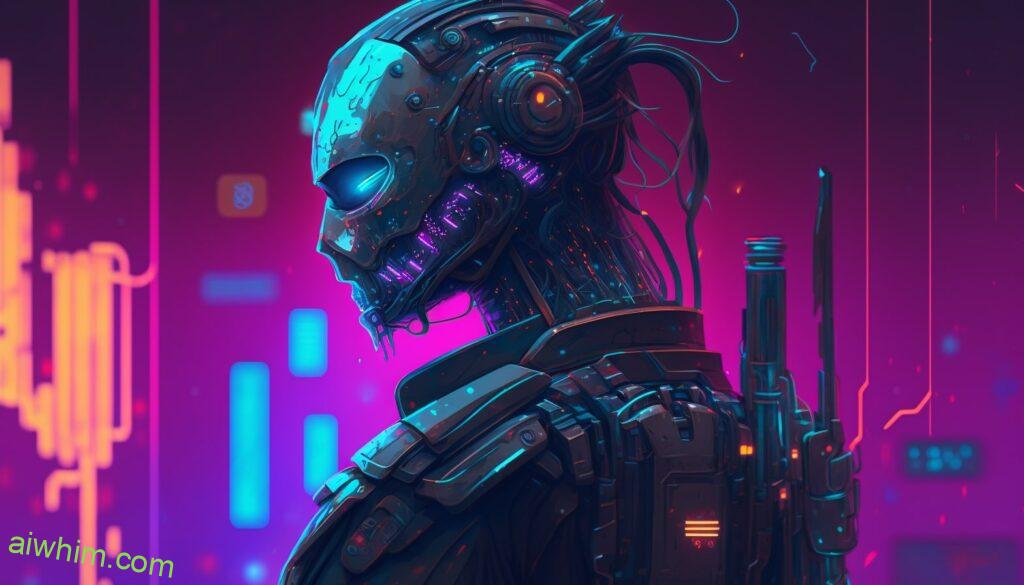
Impact On Job Security For Human Agents
The potential of a robotic replacement looms ominously over the customer service industry. Its technology can respond to customers in mere seconds, making it more efficient than human labor ever could be. It’s an eerie sight – rows and rows of automated machines that never tire or make mistakes, continually providing customers with answers they need. For those working in customer service, this reality creates uncertainty about their job security.
As robots take on increasingly complex tasks, opportunities for humans diminish further and further. With no breaks needed and no wages to pay out, chatbots become an attractive alternative for companies looking to reduce overhead costs. This leaves many customer service agents feeling vulnerable; worried that one day soon their role may cease to exist as automation takes its place.
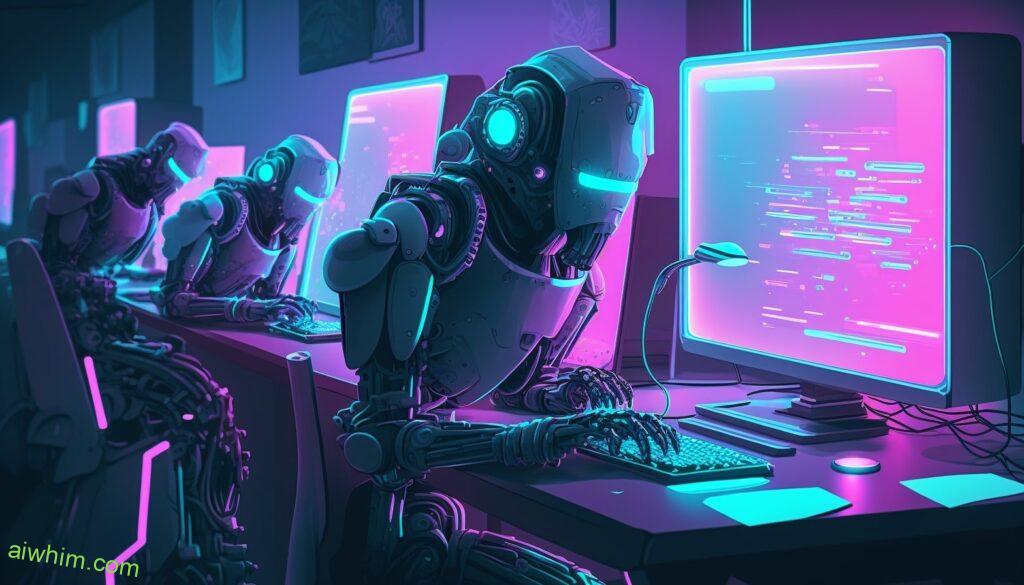
Strategies To Adapt To Automation
As customer service roles become increasingly automated, it is important for human agents to stay up-to-date on the latest technology and develop their skills in order to remain competitive. There are a few strategies they can use to ensure that they do not get replaced by chatbots.
First, agents should understand how automation works and which tasks are more likely to be handled by bots than humans. This way, they can focus their efforts on those jobs which still require a human touch. Secondly, agents must also keep learning new technologies so that they can adapt quickly when needed. Finally, customer service agents should strive to build relationships with customers rather than simply providing answers—building trust will go far toward keeping them employed as long as possible.
To stay ahead of the automation curve, customer service representatives need to demonstrate creativity in problem solving and show empathy towards customers’ needs. They should take initiative in resolving issues efficiently and effectively while maintaining quality standards. Additionally, being proactive about understanding changing trends in customer expectations and anticipating challenges may help them identify areas where automation cannot replace humans and use that knowledge as an advantage over AI solutions.
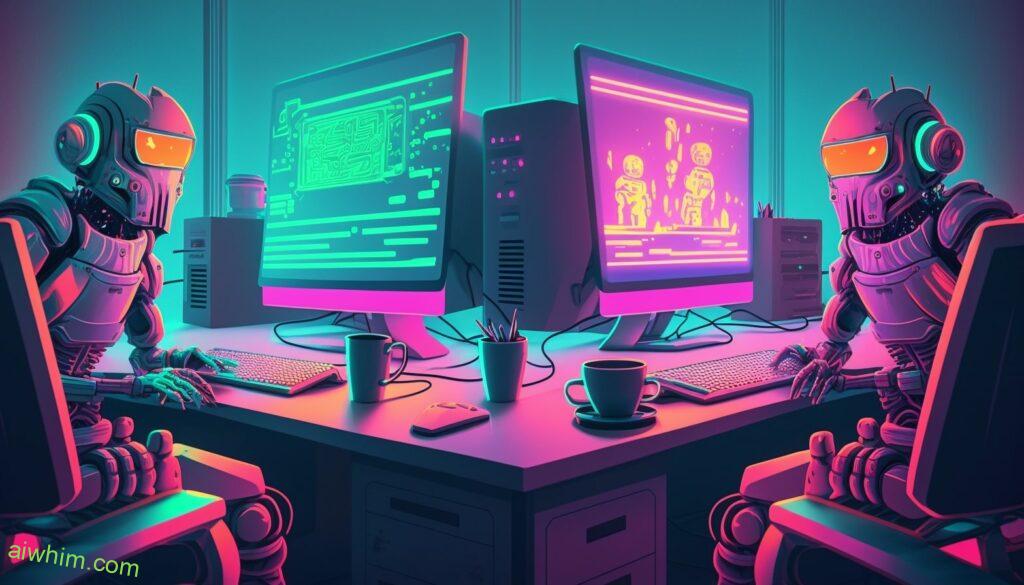
Openings For Specialized Roles After Automation
The introduction of chat bots to the customer service industry is a daunting prospect for many professionals. This shift in technology has created an environment where automation can take on basic tasks, leaving employees at risk of job loss. But while it’s true that some positions may be replaced by robots, there are still openings available in specialized roles which require human intervention and unique skills sets.
These jobs tend to involve more complex responsibilities such as relationship-building with customers or managing situations not easily solved through automated programs. Additionally, they often call for creative problem solving and decision making that requires empathy, experience and intuition; something machines simply cannot provide. These opportunities are ideal for those looking for career growth within customer service who have the right qualifications and expertise to succeed in them.
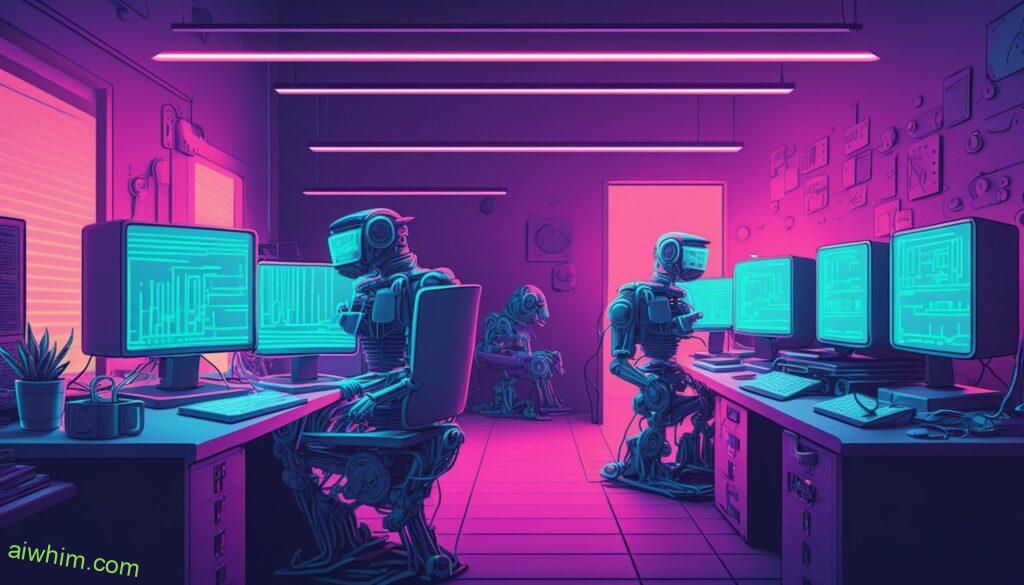
Regulations Surrounding AI-Powered Solutions
Transitioning from the discussion of specialized roles after automation, it is also important to consider regulations surrounding AI-powered solutions. In this day and age – where AI has become a major player in customer service jobs – laws need to be established that protect consumers’ rights when interacting with chat bots.
The first regulation pertains to the transparency of information given by chat bots. Customers must be aware if they are speaking with a machine or an actual person; otherwise, companies can hide behind their artificial intelligence technologies, which may lead to consumer deception. Additionally, there needs to be protocols in place for protecting customers’ privacy and data security when engaging with these digital agents. There should also be limits on what types of conversations can take place between customers and machines as well as restrictions on how much personal information can be exchanged through such interactions.
In essence, regulations need to adapt along with advancements in technology so that businesses don’t have free reign over customer service operations without considering the safety and wellbeing of those who use their services. These rules will ensure that all parties involved in digital customer service experiences remain secure while having peace of mind knowing they’re being treated fairly.
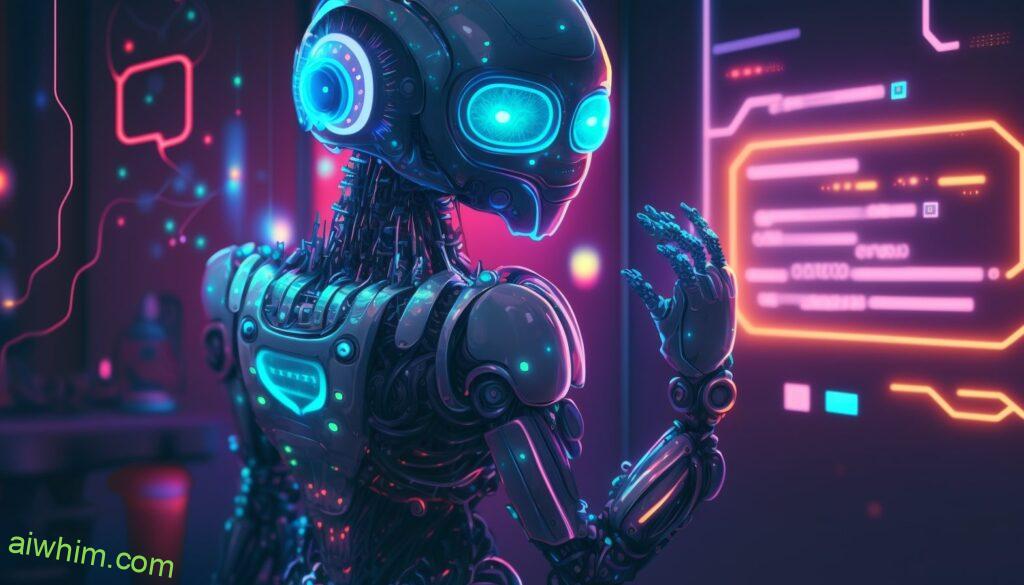
Future Outlook For Automated Customer Service
The outlook for automated customer service is a mixed bag. On one hand, the potential cost-savings and improved accuracy of bots come with great appeal to businesses. Automated customer service can offer 24/7 help, provide instantaneous responses to customers’ inquiries, as well as quickly process requests without human intervention or error. On the other hand, there are certain limitations that may prevent widespread adoption in some areas. For instance, bots may not be able to respond effectively to complex queries nor handle unique situations where creativity and critical thinking are needed. Additionally, many customers still prefer interacting with humans over machines when it comes to communication about their needs and preferences.
Despite these challenges, automation technology continues improving rapidly which could mean greater opportunities for robots to take on more sophisticated tasks in future customer service operations. Companies must weigh out the pros and cons of introducing automated solutions into their system before making any decisions regarding replacing human employees with bots. Overall, whether or not your customer service job is at risk largely depends on how willing your employer is to invest in this type of technology and if they believe it will improve efficiency enough to justify its costs.
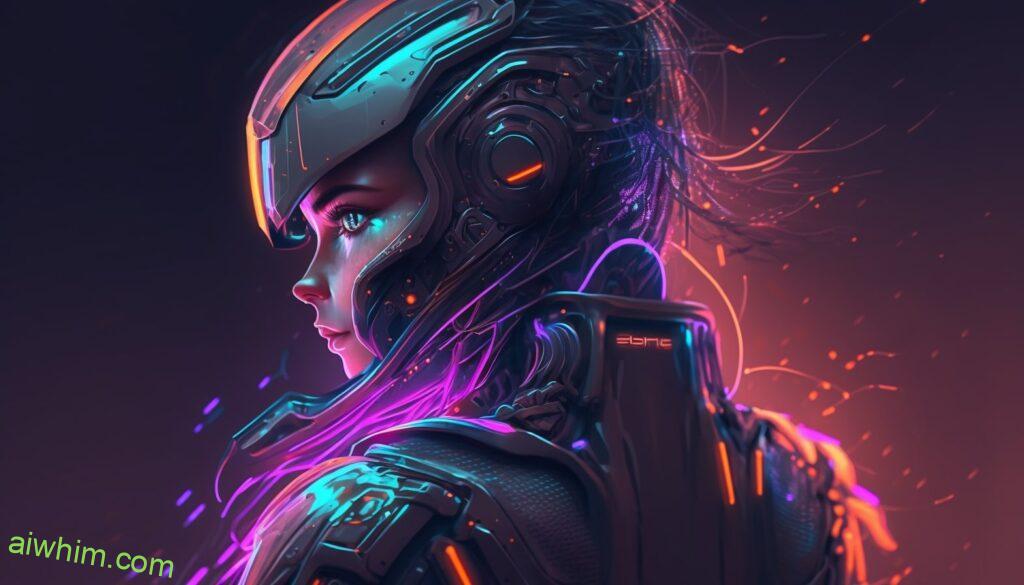
Conclusion
As AI-powered solutions such as chat bots become more prevalent, customer service jobs are at risk of being replaced. Automation has the potential to improve efficiency and cost savings while also delivering better customer experiences. However, there are still challenges that need to be addressed before widespread adoption can take place. It is important for customer service professionals to remain aware of these trends and plan accordingly by diversifying their skillset or exploring specialized roles that may arise after automation becomes commonplace. With the right strategies in place, it is possible for human agents to continue providing quality support even amidst the rise of artificial intelligence.
Author: Ole Paulson
Author Bio: I’m Ole and on this website, I share everything there is to know about Artificial Intelligence, and useful tips for using AI to our advantage. I have a background in data science and research and have been following the AI-space for years. You can read more about me in the “About” page.

